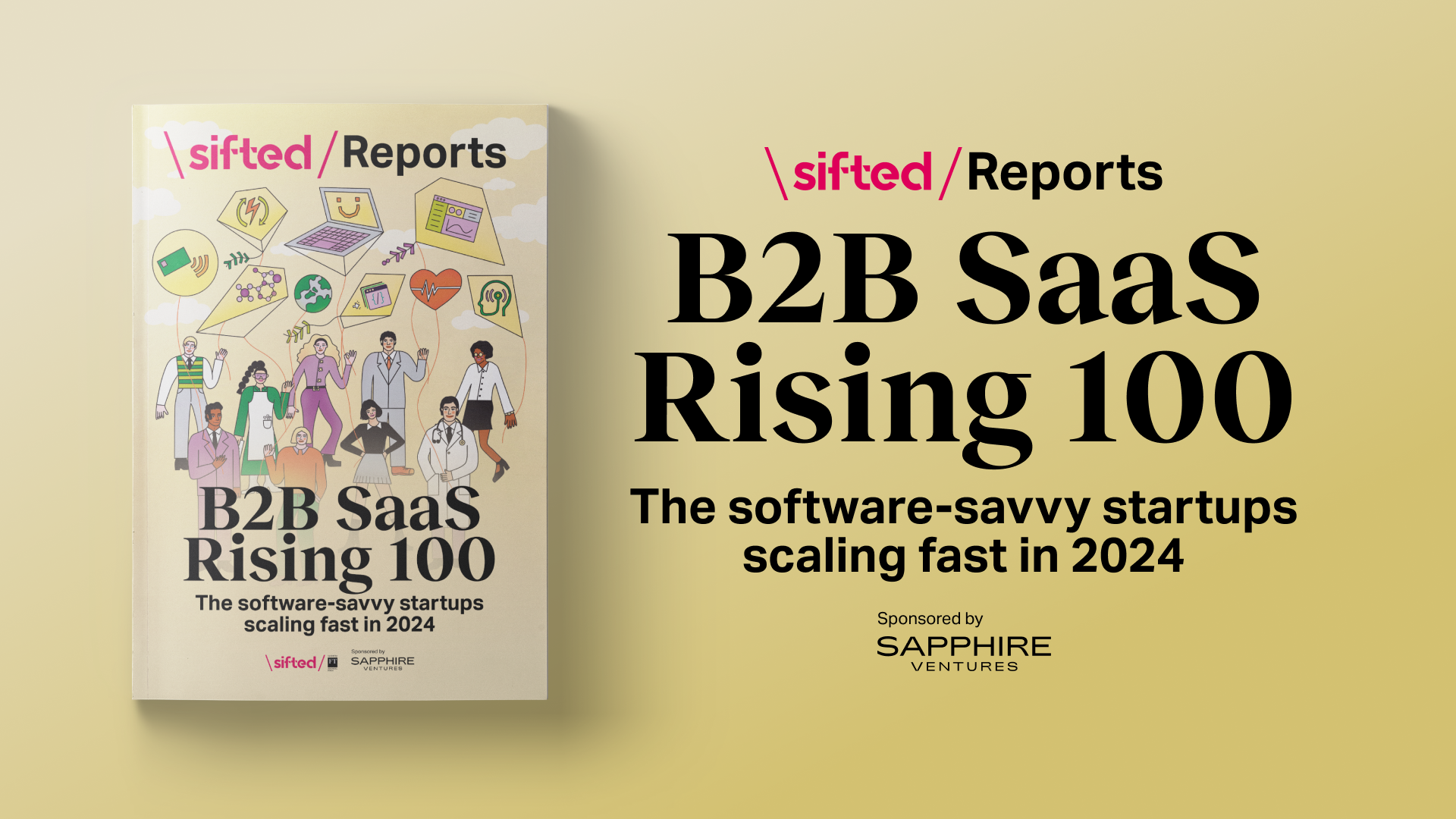Europe’s fintech startups have had a rollercoaster couple of years. After reaching a peak of $28.9bn in investor capital in 2021 according to Dealroom, just two years later that had dropped to $8.4bn, a decrease of just over 70%.
But while general market conditions across Europe — and beyond — remain somewhat wobbly, some VCs are ready to ramp investments back up. This means fintechs are returning to the spotlight: 30 startups in the sector including Brite Payments, UpVest and Allica Bank all made it onto Sifted’s B2B SaaS Rising 100 ranking of promising up-and-coming companies, sponsored by Sapphire Ventures.
“Against the backdrop of this changed reality, European fintechs have now entered a new era of value creation,” says Andreas Weiskam, partner and cofounder at Sapphire Ventures. “I believe Europe remains an environment rich in opportunities for fintechs.”
Here’s what that might look like — and what the future could hold for fintech.
Signs of the times
In the peak fintech years, it wasn’t just funding environments that were different, the abundance of capital also drove a different mentality within startups.
The focus now is on efficient and sustainable growth
“Record VC investments spurred the rise of neobanks and challenger banks, as well as digital payments and ecommerce companies from 2019 to 2021,” says Weiskam. “Those years were marked by fast growth, risk taking and experimentation.”
With less money on offer, attitudes and priorities have had to shift: “The focus now is on efficient and sustainable growth,” says Weiskam.
That has been the case for Yann Magnan, founder and CEO of French fintech 73 Strings, who says his biggest priority this year has been “scaling fast while maintaining agility”. However, he remains optimistic about the potential in Europe.
“Europe’s fintech sector has been growing fast and seen the emergence of very large players of comparable if not larger size than peers/competitors in the US, which is remarkable,” he says. “[But] on the flip side, markets are still very fragmented, and regulation is complex and fragmented as well.”
Hiring sprees and backtracks
According to Weiskam, another consequence of the previous capital boom in fintech was that some companies were too hasty with hiring and so when VC purses got tighter they had to balance that out.
Many companies had hired too many and not necessarily the right people: too many administrators, not enough doers
“A big focus for many founders last year was figuring out the right sizing for their companies in order to achieve efficient and sustainable growth. The exuberance of prior years had often created expense levels and org structures which were meant for fast growth, but not geared towards profitability nor sustainability,” he says. “Many companies had hired too many and not necessarily the right people: too many administrators, not enough doers.”
Alex Ferrara, partner at Bessemer Venture Partners, agrees.
“Last year, many fintech founders who had raised large equity rounds were grappling with how to achieve sufficiently rapid growth to justify the high valuations, while readjusting to a new paradigm of efficiency,” he says. “The common strategy in a low interest rate era was to operate with thin gross margins, with the expectation that the economics would improve significantly with enough scale.”
But since then, market dynamics have shifted. “Founders who we’ve seen successfully grow and raise capital today are those who can demonstrate a broader platform strategy that drives healthy gross margins from day one,” says Ferrara.
Fintech of the future
So, what will fintechs be focusing on in the next five years as the market stabilises from the wobble? Though the macro environment’s behaviour remains uncertain, Weiskam thinks there are ample opportunities for founders yet to be exploited.
We’re intrigued by the promise of AI to reinvent bookkeeping and accounting workflows
“Broadly, the adoption of new financial technologies will continue to be a competitive differentiator in the transformation of the financial services sector,” he says, adding that another sector ripe for development is the adoption of financial services into other software sectors, like payments by SaaS companies.
Demands and needs within C-suites are also changing, says Ferrara. With less investor generosity, many companies will be keeping a close eye on the bank account — and CFOs with this responsibility will be looking for tools to ease that task. Five of the startups on Sifted’s B2B SaaS Rising 100 ranking this year specifically focus on the CFO tech stack.
“Control is top of mind,” he says. “Particularly after a decade of companies adding new vendors and tools. There is an increased need for cost visibility, revenue predictability and cash management.”
AI is also showing promise.
“We’re intrigued by the promise of AI to reinvent bookkeeping and accounting workflows, particularly when it comes to automating repetitive tasks like general ledger entries, reconciliation and reporting,” says Ferrara.
Weiskam agrees that AI is a rich bed of possibility: “Examples include fraud detection and prevention, personalised financial services, risk management, credit scoring and underwriting, and automated customer support among others.”
But while AI can help the workflow, it can also cause problems for a company, Ferrara highlights.
“As AI models advance across modalities, so do the methods employed by malicious actors. Fraud incidents have grown as voice, text and image models are being operated by bots at scale,” he says. “Protection from an increased threat landscape is key for fintechs, particularly in maintaining consumer trust.”
But beyond the subsectors ready for innovation, Europe’s fintech space could be ultimately shaped by the performance of some of its big players, says Ferrara.
“One question is when will Stripe, Klarna, Revolut or Monzo IPO — and, once publicly traded, how will they trade?” he says. “That will likely create a ripple effect on the valuations of earlier stage private fintech companies.”
Discover the B2B SaaS Rising 100 full list here and download the report here.

Read the orginal article: https://sifted.eu/articles/european-fintech-2024-brnd/


